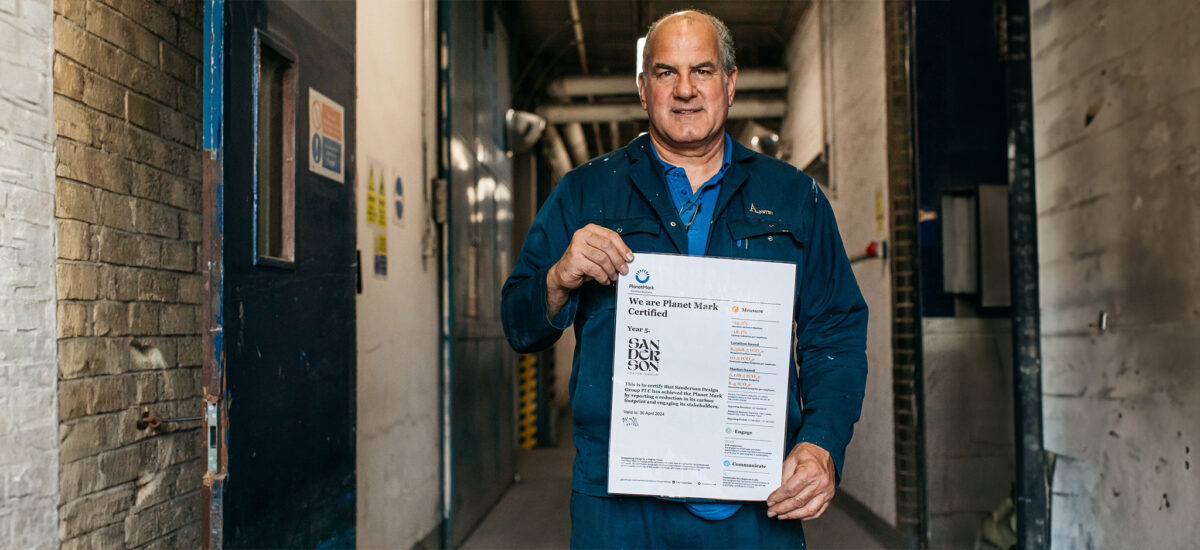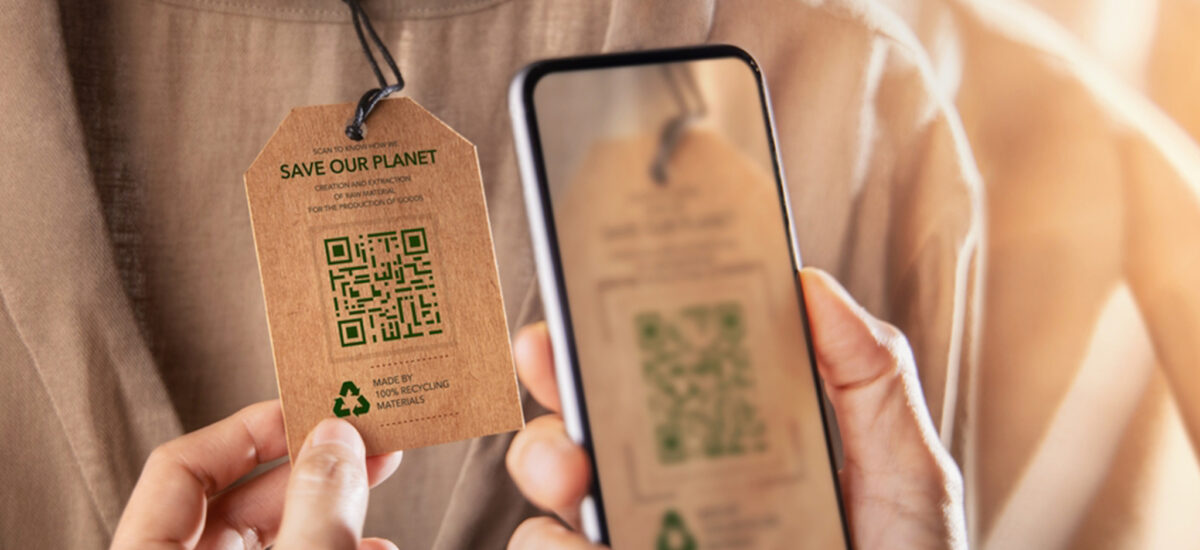About Earth Day 2024
Earth Day, observed annually on April 22nd, is a global call for businesses to champion environmental sustainability.
Rooted in the 1970s environmental movement, Earth Day prompts businesses to reassess their sustainable impact and actively address environmental challenges.
Every year, Earth Day provides a unique opportunity for businesses to align their values with the ongoing global movement to mitigate climate change.
To help your business improve its sustainable impact this Earth Day, we have put together five thoughtful strategies you can implement to in making a positive and lasting impact on the environment:
Five ways businesses can make a sustainable impact this Earth Day
Transition to recycled and sustainable materials
2024’s Earth Day theme ‘Planet vs. Plastics’ provides a valuable opportunity for businesses to evaluate and reshape your company’s behaviour towards plastic in production. As part of this assessment, scrutinise how your products are packaged. Can you transition to recyclable materials?
For instance, consider replacing bubble wrap with sustainable alternatives like compostable tissue paper. While the shift to recyclable materials is crucial, explore a broader approach, such as biodegradable air peanuts, mailers made from 100% recycled material, and compostable plant-based bags that can further reduce your negative environmental impact.
Extend your commitment by adopting closed-loop processes. Restock office supplies with sheets made from recycled materials, establishing a sustainable cycle. Implement practices like double-sided printing, utilise digital files, and designate paper-free days to minimise environmental impact further.
Reduce your environmental impact with a third-party certification
For most small medium enterprises (SMEs) in the UK, energy consumption constitutes most of their carbon footprint. Addressing your energy emissions this Earth Day can significantly reduce your environmental impact and boost overall business performance.
There are many incentives available that can make energy efficiency more affordable for your business, and the right sustainability consultancy can help you navigate these and determine what opportunities will support your company best, like choosing renewable energy sources.
Planet Mark’s Clean Energy Procurement team, has supported several organisations implement energy efficiency initiatives affordably. Most recently, we helped, Higgins Construction Group PLC achieve cost savings with a switch to renewable energy.
“Planet Mark’s energy service has helped us move from a grid-average fuel mix to 100% renewable energy and saved us significant amounts of money in the process”
Julie Brooks, Director of Compliance, Higgins Construction Group PLC.
Developing a tailored plan to tackle your carbon footprint aligned with your organisation’s unique needs will ensure a long-term approach not just to reduce your environmental impact but to actively guide your business towards net zero and a more sustainable future.
Moreover, a recognised certification enhances your credibility and reputation, becoming a powerful tool for customer acquisition and retention.
In fact, according to Amazon Ads research in the 2023 Higher Impact report, 52% of consumers are willing to pay more for products with third-party certification. Partnering with auditing organisations aligns your business with this sentiment, providing a certification that goes beyond financial gains.

Leverage Earth Day to drive supplier collaboration for emission reduction
As much as 90% of emissions can originate from within the value chain, underscoring the crucial role of supply chain transformation in your sustainability strategy. Earth Day offers an opportunity to initiate discussions with suppliers on how you can work together to reach sustainability targets by tackling emissions within your supply chain.
By making strategic changes, you not only reduce your environmental impact but also unlock cost-saving opportunities for your business and suppliers. For instance, implementing inventory management software minimises wasted stock, and route planning software can cut emissions in your transport network.
Fortnum & Mason provides an exemplary model of supplier engagement. They held a conference with suppliers and partners to discuss shared goals around Net Zero, carbon reduction, packaging, food waste reduction, and social mobility. At the conference, Planet Mark engaged with their suppliers, offering tips on managing carbon-intensive operations and kickstarting Fortnum & Mason’s Scope 3 measurement project.
Planet Mark member Fortnum & Mason serves as an outstanding example of supplier engagement, showcasing their commitment to sustainability through proactive initiatives. They recently organised a conference that brought together suppliers and partners to discuss shared goals around net zero, carbon reduction, packaging, food waste reduction, and social mobility.
During the conference, Planet Mark’s engagement team spoke about strategies for achieving net zero, practical reporting steps, and the importance of collaborative data recording.
The discussions emphasised the urgent need for sustainability amid rising global warming concerns, and the moral, commercial and regulatory imperatives for change were discussed, with a positive that annual spending on ethical products and investments rose to £122bn in 2020, from £11.2bn in 1999.
Engage employees and customers to amplify sustainable impact
The first step is always the toughest on the road to net zero, and fostering both employee and customer engagement is a powerful tool for every organisation. Educate your team and customers about environmental issues through impactful training sessions, engaging workshops, and the reach of social media. Create a culture of sustainability within your organisation by infusing it with measurable outcomes, instilling a sense of collective responsibility.
Simultaneously, engage customers by offering incentives such as discounts for take-back schemes. This dual approach not only creates awareness but actively involves both internal and external stakeholders in your sustainability initiatives.
Take inspiration from Total Office, a company that embarked on its net zero journey with Planet Mark’s assistance. Their tailored Business Certification and comprehensive Net Zero Strategy and Action Plan equipped them with the necessary tools to make a significant impact, fostering behaviour change and a collective sense of ambition among their workforce.
Total Office’s initiatives were met with positive reception from their customers, leading many to express readiness to invest more in sustainable products. As a result, the company decided to broaden its range of green products, now offering over 1,400 entirely recycled items, a substantial surge from the 200 available in 2018. This exemplifies the potential benefits of integrating sustainability strategies with employee and customer engagement to foster constructive transformations.

Be clear about your work to reduce your environmental footprint
However you decide to celebrate Earth Day 2024, make sure to communicate clearly your brand mission and sustainability efforts.
Engaging your audience through authentic storytelling is crucial—whether narrating your journey through challenges, celebrating milestones, or outlining future goals. This approach humanises your brand, fostering a deep connection with your audience. Remember to keep brand messaging in terms that your audience will understand and maintain transparency about your sustainability efforts.
Importantly, genuine communication not only builds trust but also safeguards your reputation. Misleading practices such as greenwashing, exaggerating your environment-focused initiatives, or greenhushing, downplaying your efforts, can have severe consequences. Consumers today are savvy and can easily discern inconsistencies.
Moreover, regulatory bodies are increasingly vigilant about false claims related to sustainability. Violations can lead to fines, legal repercussions, and substantial damage to your brand’s reputation. Upholding authenticity in your sustainability communication not only resonates positively with your audience but also ensures compliance with ethical and legal standards, fostering a lasting and trustworthy relationship.
Utilise resources like Planet Mark’s guides on greenwashing and greenhushing to enhance transparency further.
Earth Day: catalysing a sustainable future through business initiatives
Earth Day stands as a powerful reminder of our collective ability to drive positive change for business, people, and the planet. Sustainability is more than a moral imperative; it’s a strategic investment that brings in benefits across the board.
Businesses have significant influence in steering us toward a more sustainable future. Whether it’s reducing carbon emissions, investing in sustainable materials, or reimagining energy usage, the ripple effects are profound – environmentally, economically, and socially. The interplay between sustainable practices and business success emphasises the shared journey toward a cleaner, more responsible future.
This serves as a call for organisations of all sizes, across all sectors, to take meaningful actions, urging investments in practices that not only improve the bottom line but also contribute to a healthier planet. Let’s use this day as a catalyst for an enduring commitment to sustainability and a net-zero future, where businesses of today shape the sustainable success stories of tomorrow.
When is Earth Day 2024 celebrated?
Earth Day is observed annually on April 22nd.
What is the purpose of Earth Day?
Earth Day encourages businesses and individual to actively support the environmental protection of the planet. It inspires individuals to demonstrate their commitment through engaging activities like community clean-ups and tree planting, while organisations are encouraged to adopt sustainable practices in their daily operations.
Which countries celebrate Earth Day?
Earth Day is a global phenomenon celebrated in over 193 countries, making it as the world’s largest environmental movement, according to EarthDay.Org.
When did Earth Day start?
In 1969, American peace activist John McConnell proposed the idea of dedicating a day to honour the planet. Over the following decades, Earth Day has evolved into a globally recognised occasion, engaging both individuals and businesses in environmental commitments.


